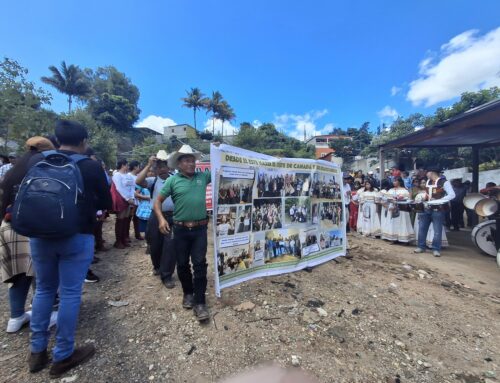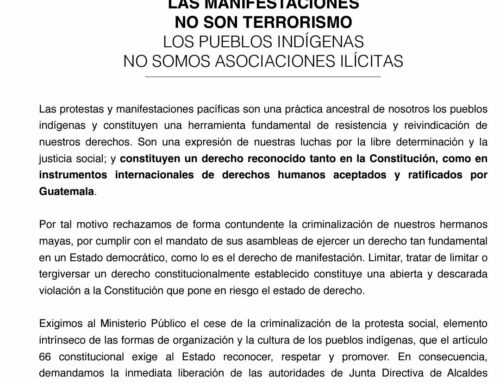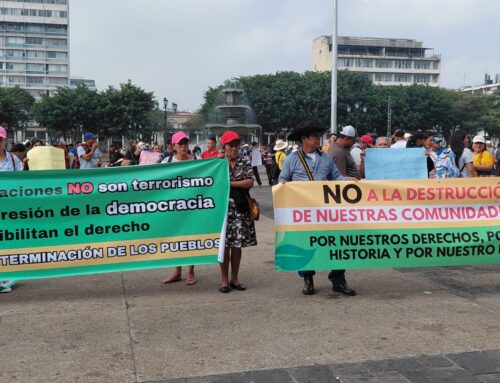Representatives from numerous organizations held a press conference on March 18 to denounce human rights violations committed during the eviction of hundreds of rural Maya Q’eqchi’ families in the Polochic Valley, in the department of Alta Verapaz and to demand that the authorities halt the evictions. The organizations addressed a letter of protest to Ban Ki-Moon, Secretary General of the United Nations, who was visiting in Guatemala while the evictions were being carried out.
According to the Campesino Unity Committee (CUC) and the National Coordinating Committee of Campesino Organizations (CNOC), in spite of all parties having agreed to resolve the land conflict in Polochic through dialogue on March 14, one day later, on March 15, the authorities started evicting more than 8 communities with hundreds of families. The families were living on the land of the sugar and African palm company Chabil Utzaj, owned by Carlos Widmann of one of the most economically powerful families in Guatemala.
During the evictions, a number of people were injured and Antonio Beb Ac died of severe head wounds.
Hundreds of National Civil Police officers and soldiers carried out the evictions, using tear gas on the population while company tractors destroyed the communities’ crops. The campesino organizations at the press conference said the burning of crops violates the communities’ right to food security and is reminiscent of the “scorched earth” tactics used by the army during the counterinsurgency campaign of the 1980s. A representative of the Integral Rural Development Alliance (ADRI) said that witnesses also observed armed men in civilian clothes from neighboring communities participate in the evictions. Some of the men were later seen getting into police and army vehicles to put on uniforms.
The contested land in the Polochic region was acquired through a loan by the Central American Economic Integration Bank (BCIE) and handed over to agro-business companies like Chabil Utzaj. During the administration of former President Oscar Berger, the company moved its major sugar refinery from Escuintla to Alta Verapaz. In August of 2010, the media announced that Guatemala’s Industrial Bank was planning to auction off Chabil Utzaj’s 37 plantations in Alta Verapaz and the refinery closed. Campesino families decided to occupy additional land, which some families have historical ties to and where some families had been living for a long time, and ask the government to negotiate a deal. According to El Periódico, the company’s spokesperson has now said the news about the auction was false and that foreign business partners are currently waiting for the evictions to be carried out on the 12 plantations as ordered in order to reopen operations. The BCIE recently announced a restructuring of the original loan with new investment from Guatemala Sugar State Corp.
The organizations at the press conference mentioned the links between the Widmann family and former President Berger, as well as possible alliances between the current government and the Widmann family in this year’s electoral process, as conflicts of interest, proposing that the State buy the land and hand it over to the Maya Q’eqchi’ families currently living in poverty and extreme poverty on land that had been abandoned by the company.
For more information:
- Fundacion Guillermo Toriello: http://www.fgtoriello.org.gt/
- Comite de Unidad Campesina: http://www.cuc.org.gt/es/
- Union Verapacense de Organizaciones Campesinas: http://uvocguatemala.blogspot.com/
- Coordinadora Nacional Indigena y Campesina: http://www.mayaconic.org/






Leave A Comment